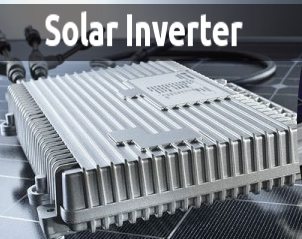Plans are underway for Zimbabwe’s first solar testing laboratory as the Zimbabwe Energy Regulatory Authority has begun the process of tendering for the equipment required, according to Chief Executive Engineer Gloria Magombo.
The project is being carried out in joint partnership with the Standards Association of Zimbabwe (SAZ), the national quality control overseer.
Quality testing will be carried out on charge controllers, batteries, inverters and on solar PV panels. The energy regulator will pass new laws to back the laboratory , aimed at stopping all manner of solar energy equipment policy, retail or import abuse. Solar photovoltaic (PV) is the technology that converts energy from the sun into electricity.
Also read:Major thermal power station in Zimbabwe to be constructed
While already many Zimbabwean households are using off-grid solar for lighting, heating and cooking, there has been concern most of the imported solar components are of poor quality. Duty- free importation of solar equipment allowed at law has been abused by importers and complaints have been reported through the Consumer Council of Zimbabwe by consumers cheated into buying fake batteries and other consumables. The ZERA/SAZ solar testing laboratory is thus a welcome move. Engineer Magombo said with a penetration rate of only 18%, solar could grow big in Zimbabwe, and so will abuse.
Engineer Magombo said, ‘We have started working on the procurement process. Initially, we sent out experts to countries where such laboratories exist to identify the kind of equipment needed for our own laboratory. Having done that, and together with SAZ, we have now come up with the terms of reference of what is required. This will go through a tendering process, then procurement.’
ZERA is developing regulations which include stipulated minimum quality standards to which importers and retailers would have to conform for all solar equipment sold domestically. This will be mandatory. Quality on solar is currently controlled through four SAZ standards implemented between 1993 and 1999, covering PV panels, batteries, charge controllers and design, sizing and installation of battery –based PV systems, however, certification is voluntary. Engineer Magombo is hoping ZERA’s new regulations will build on SAZ’s existing standards.
In future, suppliers of authentic renewable energy equipment will be accredited by ZERA and the information made public. Zimbabwe has one of the highest solar radiations in the world. The National Energy Policy (NEP) of 2012, lays out plans for expanding solar, hydro and bio-fuels by end of this decade. It targets ‘cost-reflective feed-in tariffs with appropriate subsidy mechanisms’ as an incentive to boosting solar energy generation.
